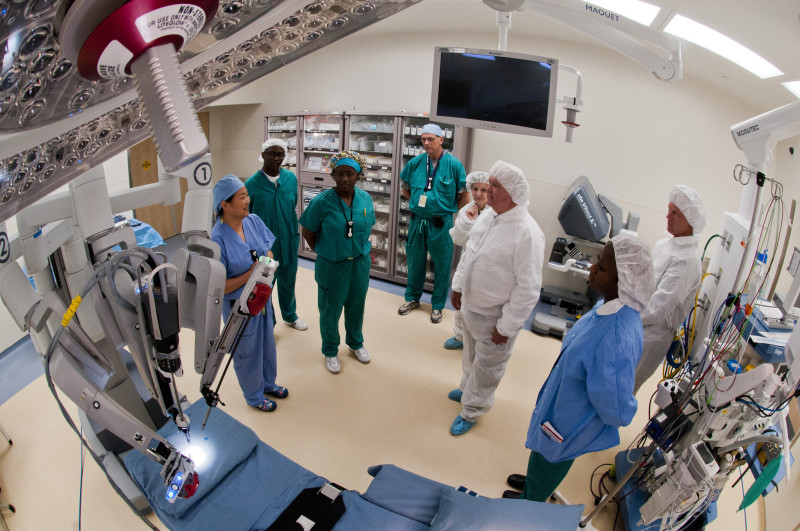It may seem odd that an Internet search company is looking into surgical robotics. But Google has been exploring opportunities in the medical sector since 2008, when it introduced its ill-fated Google Health initiative.
Today, Google's research arm, Google X, has a small but fast-growing team of experts drawn from the biotech and Life Sciences world, who are working on projects like a glucose-monitoring contact lens. Its futuristic hardware, Google Glass, has already been used in the operating theater. Surgeons use it to record procedures or live-stream feeds of operations to medical professionals in other countries.
For Google, the partnership presents an opportunity to bring innovative technology to hospitals and improve its brand in health care.
Surgical robotics is an increasingly attractive field for both health and technology companies, as it can increase surgical accuracy and access. And patients often experience less scarring, trauma and a shorter recovery time.
Top hospitals, like NYU Langone, have been using robots for about a decade for a long list of surgical procedures, including lung and cardiac surgeries.
But surgical robotics hasn't been without its critics.
In recent years, reports have pointed to a rising number of botched surgeries, resulting from robot-assisted surgeries. This has led to fears that doctors are under too much pressure to use robots in surgery, but haven't been adequately trained.
Some experts have called for increased monitoring and a more thorough evaluation into the benefits and drawbacks of surgical robotics.
Concerns aside, other companies in the space say Google's involvement is an indication that surgical robotics is poised to explode.
Sunnyvale based Intuitive Surgical, one of the best known companies selling surgical robots, said this announcement demonstrates that computer-assisted surgery "won't sit on the sidelines."
"Computer-assisted surgery will continue to flourish around the globe and competitors have been expected," the company said.
[Watch a TED talk below, featuring Intuitive Surgical's Catherine Mohr, for more information on robot-assisted surgery.]
